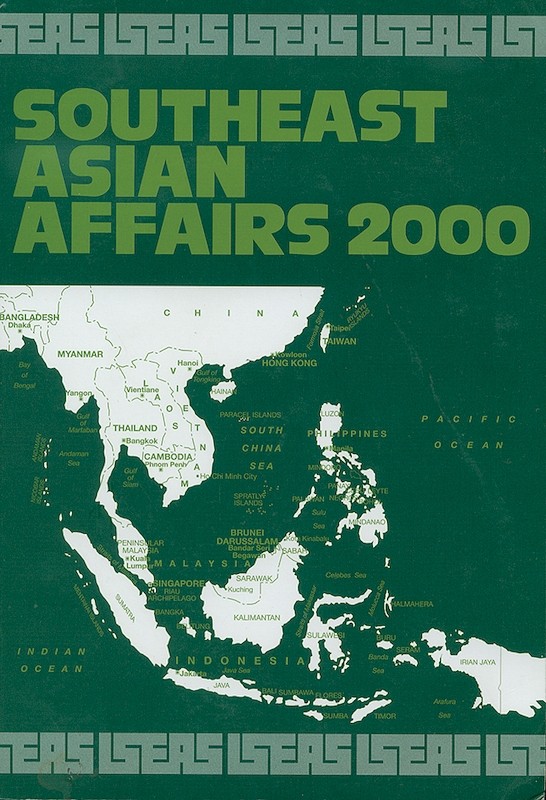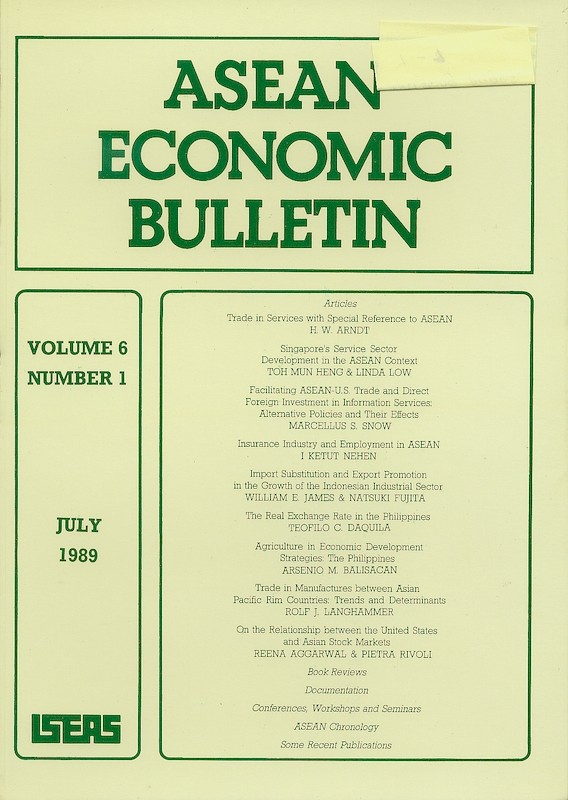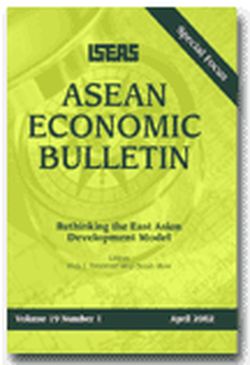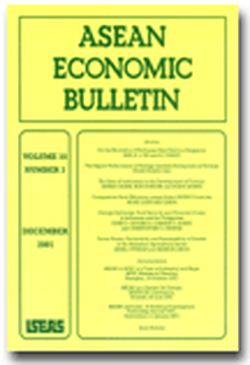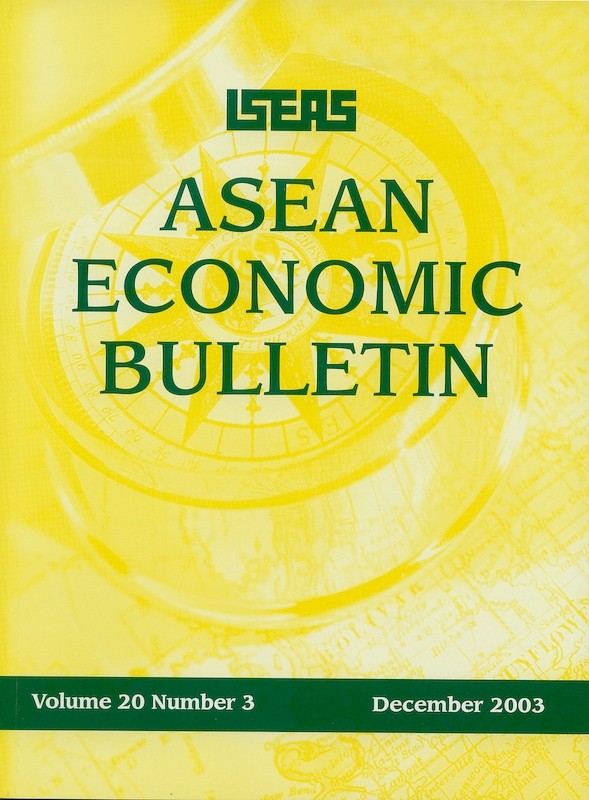ASEAN Economic Bulletin Vol. 15/1 (Apr 1998). Special Focus on "Development Strategies, Agricultural Policies and Agricultural Development in Southeast Asia".
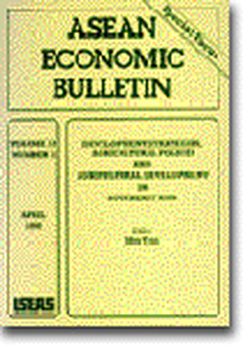
About the publication
Special Focus on on Development Strategies, Agricultural Policies and Agricultural Development in Southeast Asia, edited by Mya Than
Contents
-
Preliminary pages
-
Introductory Overview: Development Strategies, Agricultural Policies and Agricultural Development in Southeast Asia, by Mya Than, contributor
-
Economic Reforms and Agricultural Development in Myanmar, by Myat Thein, Maung Maung Soe, contributors see abstractThis article examines the impact of economic reforms on the development of the agricultural sector in Myanmar. It begins with a brief presentation of the major elements of economic reforms since 1987, and examines the agricultural sector in the light of these policy reform measures as well as of other more direct measures undertaken by the state. The authors also present some of the issues which need to be reviewed in order for the agricultural sector to have rapid but sustainable and equitable growth.
-
Economic Reforms and Their Impact on Agricultural Development in Vietnam, by Tran Thi Que, contributor see abstractTo evaluate the impact of economic reforms on agricultural development in Vietnam, the article is divided into four parts. In the first part, the situation of the agricultural sector before the reform doi moi is described and analysed. Then the author presents the economic reforms in agriculture, including the management system of production, land reform and market policy, in the second section; in the third section the impact of the reform in terms of economic performance and social changes are analysed. The findings of the study are presented in the concluding section.
-
Economic Reforms and Agricultural Development in Indonesia, by Mangara Tambunan, contributor see abstractThis article analyses the impact of economic reform on agricultural sector development. The result indicates there are at least two macroeconomic policy biases towards agriculture: underinvestment and double squeeze. Economic reform through deregulation via the market-based approach indicates that this would largely benefit the agricultural sector. Monetary policy instruments, such as money supply and exchange rate, and the growth of economy have positive effects on the agricultural sector share in GDP. This implies that shifting from import substitution to export promotion industrialization strategy would provide a conducive environment for agriculture development. Furthermore, removal of subsidies and deregulating agricultural sector price would strengthen efforts to increase production and income. Thus, the economic reform, shifting from the tightly-protected to market-based approach, would strengthen the agricultural sector.
-
Economic Reforms and Agricultural Development in Malaysia, by Abdul Aziz Abdul Rahman, contributor see abstractDespite the significant growth of the agricultural sector in Malaysia over the last three decades, the incidence of poverty continues to remain high among the target agricultural groups of food crop farmers, export crop smallholders and fishermen. This is because the overall effect of macroeconomic policies promoted the growth of the industrial, mainly manufacturing, sector and to discourage the growth of the agricultural sector. Various measures have now been put in place by the government to dampen the unfavourable effect of industrialization on agricultural development and to create a favourable environment for greater capital investment in the primary sector. These include technological improvement and mechanization; reducing over-dependence on foreign unskilled farm labour; removal of export duties on agricultural commodities; farm diversification and land reform. These will be supported further by strategies and programmes aimed at improving farm level conditions to enhance factor productivity and efficiency, commercially-oriented activities and high value enterprises.
-
Policy Reforms and Agricultural Development in the Philippines, by Arsenio Molina Balisacan, contributor see abstractThis article examines the character of agricultural development and the policy environment influencing the performance of the rural economy during the postwar period. It shows that, while domestic and global shocks could be blamed for the poor performance of agriculture and the slow decline of rural poverty in recent decades, they are hardly sufficient reasons. The more fundamental reasons have to be found in domestic policies directly and indirectly affecting agricultural structures and incentives, particularly market regulations and public investment biases against the rural sector. Moreover, contrary to common perception, growth-enhancing policy reforms in recent years, albeit largely incomplete, have favourably changed the economic environment facing the poor.
-
Agriculture in Thailand at the Cross-Road, by Apichai Puntasen, Paradorn Preedasak, contributors see abstractSince the inception of the First National Economic and Social Development Plan in 1961, agriculture in Thailand was deliberately planned by the Thai Government to generate foreign exchange earnings needed to stimulate industrial development through import-substitution policy at least until 1976. Monoculture was introduced to replace the traditional practice of self-sufficient farming while domestic prices were kept at perpetually low level through various forms of export tax in order to generate income for the government as well as to keep the labour cost of production at low level to be conducive for industrial development. Agriculture in Thailand is now at the cross-road as to whether the Thai Government should promote the expansion of these new forms of agriculture to provide strong economic bases for small farmers as well as national economic and social security. At the same time, it should continue supporting the agro-industries basically for export, when there is no conflict of interest in terms of resources and environment between the two forms of agricultural practices.


